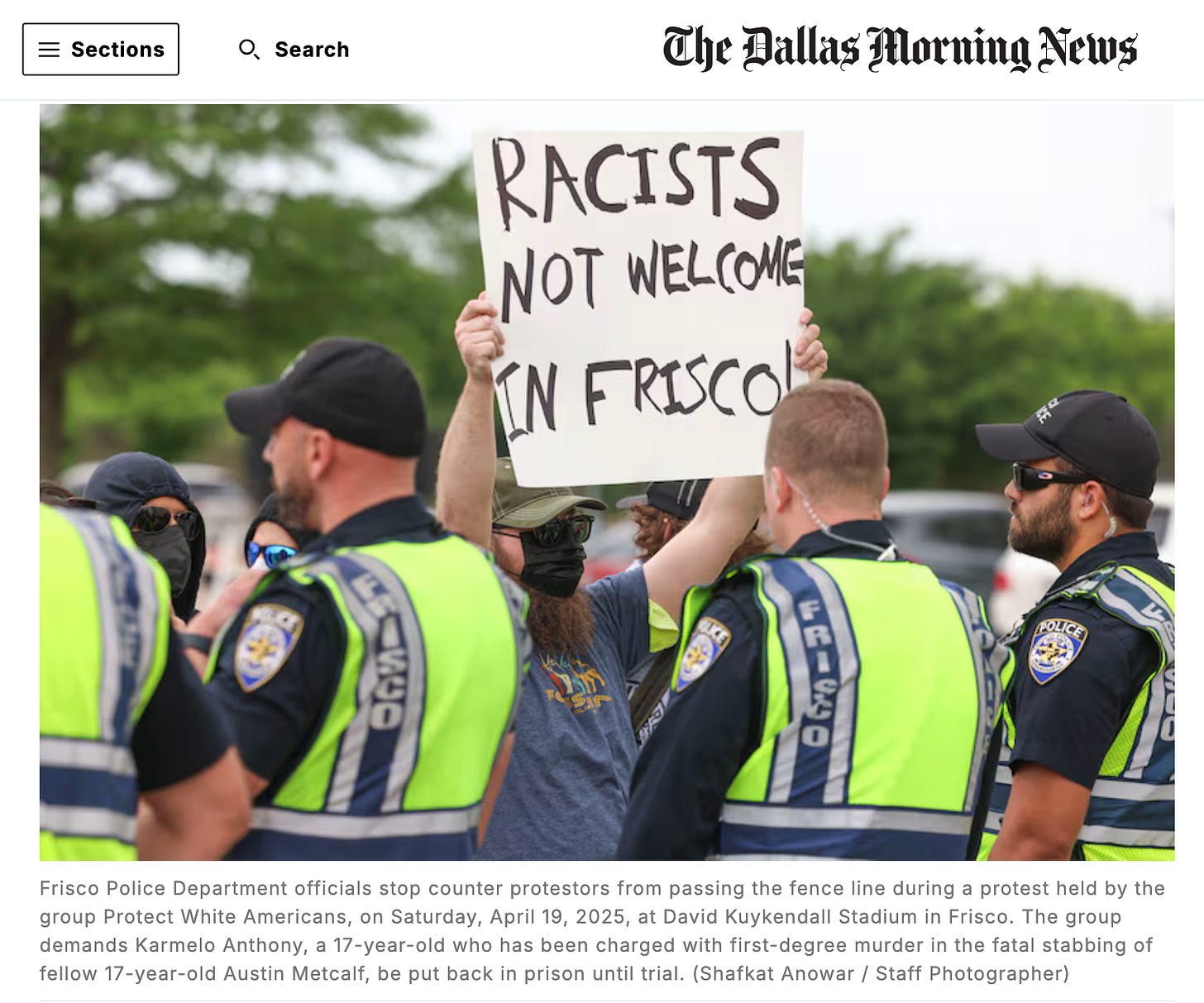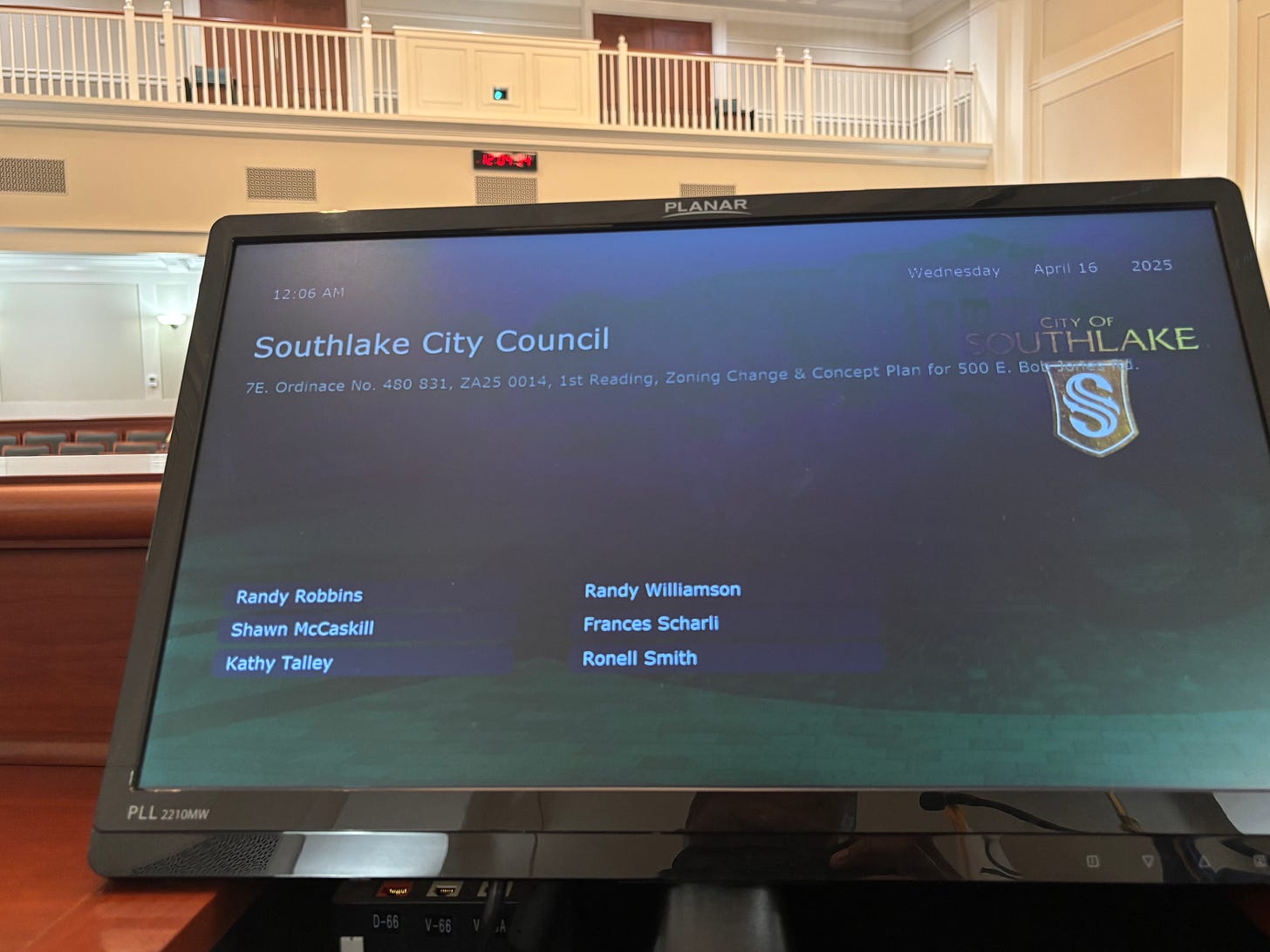Grief on a knife-edge
How Frisco’s teen tragedy became a narrative arms race—and what leaders must do next
When tragedy strikes a tight-knit community, what happens next often reveals more about the stories we choose to tell than the facts on the ground. This week, Frisco is living that truth. A fatal stabbing between two teenagers has spiraled into a national flashpoint—complete with swatting calls, online vitriol, and activists eager to reframe grief as a zero-sum race debate. Having weathered a similar storm while running for office in Southlake, I know how quickly outside voices can drown out local ones and how easily political hopefuls can be forced into sound-bite brinkmanship.
In today’s Dallas Morning News column, I spoke with the Frisco City Council candidates now tiptoeing through this minefield. Their challenge is one every community leader eventually faces: How do you acknowledge real pain without letting the loudest provocateurs define the narrative?
Below is the full piece. After you read it, I’d love to hear what should leaders (and the rest of us) do to keep empathy from being weaponized?
"The tragic killing of 17-year-old Austin Metcalf — allegedly at the hands of fellow 17-year-old Karmelo Anthony, a student from a neighboring Frisco high school — has become more than a devastating loss. It’s now a flashpoint, fueling outrage, racial tension and relentless division in one of North Texas’ fastest-growing and most diverse communities.
“Swatting calls. Harassment of both families. Protests. And an avalanche of racist vitriol online. Things are getting loud in this quiet suburb.
“As election day approaches May 3, local political candidates are being forced to walk a knife’s edge — balancing grief and outrage with the high-stakes optics of every word they utter. When a single comment can be weaponized in campaign ads or social media clips, candidates must choose their words with care, offering support while demonstrating leadership to the community they hope to serve.
“This appears to be the approach of Burt Thakur, a candidate for Frisco City Council Place 2.
“Inopportune things happen all the time,” Thakur said. “But the murder of a child is still the murder of a child. We need to distance ourselves from both sides using this to stir up emotion and instead focus on how we can be better in the aftermath of such a horrible tragedy.”
City council tenure (nearly) complete
The May 6 city council meeting will by my last and shortest ever—for me, that is. My attendance is ministerial only, as I’ll only be on the dais for the prayer and the pledge of allegiance.
“It is time,” I said to a friend last week after being asked what my feelings are about not being on council.
Quote of the week
“[T]he key attribute of leadership is doing the right thing when it’s hard. Really hard.” —Scott Galloway, Breaking the Silence
Video that caught my eye last week
Despite being surrounded by a clan of hyenas, this male lion was unperturbed. In the video, you can see that he has a zen-like calm. The hyenas smartly moved along.
What I’m reading
The Science of Storytelling: Why Stories Make Us Human and How to Tell Them Better | Will Storr
Further continuing a book-reading trend I’ve been enjoying:
The book—while rich and layered—feels accessible, clocking in under 300 pages without ever dragging.
It tackles a timeless challenge—how to craft stories that truly connect—with warmth, sharpness, and deep psychological insight.
Readers leave with a clearer understanding of why humans are wired for story, along with practical tools to create narratives that resonate, linger, and move audiences.
In a nutshell
Storr masterfully demystifies storytelling, showing that it’s less about following rigid templates and more about revealing the internal struggles that make characters (and all of us) human. (It’s not a how-to books.) Instead of offering formulas, he invites readers to think like storytellers who understand the messy, beautiful complexity of the mind. Full review forthcoming.







